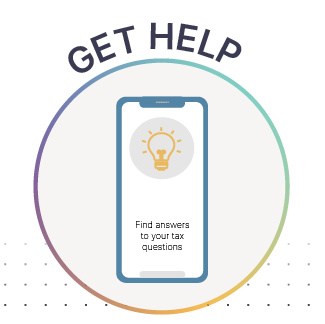No matter where you find a tax return preparer, do your homework before you trust anyone with your important personal tax information.
There are many ways to find a tax return preparer. The IRS has a directory of preparers with certain kinds of credentials, such as enrolled agents. IRS.gov also offers a list of national non-profit tax professional groups, which can help provide additional information for finding the right type of qualified help. You may have a reference from someone you know or have a tax return preparation business in your neighborhood.
Certain taxpayers qualify for free professional help in preparing and filing returns, through the Volunteer Income Tax Assistance (VITA) program and Tax Counseling for the Elderly (TCE).






